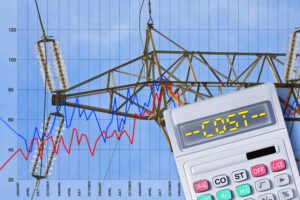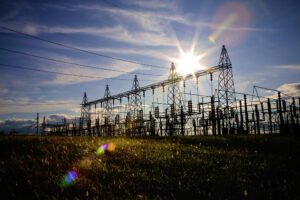Energy usage charges, which include the cost of the energy you consume, make up a significant portion of your energy bill. To reduce your overall energy costs, it’s important to understand your tariff and how energy is charged by retailers.
Type of Energy Tariffs
-
Fixed Rate
A fixed rate energy tariff means you pay the same rate for fuel (Electricity or Natural Gas) during the contracted term
A fixed rate energy tariff means you pay the same rate for fuel (Electricity or Natural Gas) during the contracted term
-
Variable (Floating) Rate
Variable rates tariffs change monthly and may be influenced by wholesale energy prices. These tariffs may also include additional charges called service fees, which are charged per unit of energy consumed.
Variable rates tariffs change monthly and may be influenced by wholesale energy prices. These tariffs may also include additional charges called service fees, which are charged per unit of energy consumed. Many customers are unaware of these fees.
-
Bundle (Dual Fuel) Tariff
This tariff refers to a service where both electricity and Natural gas are supplied by the same retailer. This arrangement can be convenient as it allows for unified billing and payment and simplifies communication with the energy company, as there is only one point of contact.
This tariff refers to a service where both electricity and Natural gas are supplied by the same retailer. This arrangement can be convenient as it allows for unified billing and payment and simplifies communication with the energy company, as there is only one point of contact.
-
Single Fuel Tariff
Single energy tariffs are plans that only cover either electricity or natural gas. These tariffs are popular among multi-family apartment residents, but may also be chosen by some single-family home customers who have a favorable deal with a retailer.
Single energy tariffs are plans that only cover either electricity or natural gas. These tariffs are popular among multi-family apartment residents, but may also be chosen by some single-family home customers who have a favorable deal with a retailer.
-
Green Tariff
Green energy tariffs guarantee a portion of electricity from renewable sources and typically come with a premium price.
Green energy tariffs are energy plans that source at least part of their electricity from renewable sources like solar or wind. These tariffs often come with a higher price than standard energy plans, as they aim to support the use of renewable energy sources.
What's The Implications of Tariff Types to Homeowners
A Fixed Rate energy tariff allows you to predict your monthly energy bills because the rate remains the same for the duration of the contract.
On the other hand, a Variable Rate tariff means that your monthly energy bill is subject to fluctuations in the market, typically based on wholesale energy prices, making it more difficult to estimate your monthly costs.
Which Energy Tariff is Best?
The most suitable energy tariff depends on your energy usage patterns and personal preference. If you prefer predictability in your energy bills, a fixed rate tariff might be the best option for you.
On the other hand, if you are willing to take the risk of potential price increases in exchange for the possibility of lower energy costs, a variable rate tariff may be a better fit. It’s also important to consider factors such as your values and priorities, such as whether you care about supporting renewable energy sources.
When Should I Fix my Tariff?
Only you can decide whether and whether to fix your energy tariff and now. If global energy prices are particularly high, it might not be the right time to fix your energy tariff. However, if rates are relatively low, it could be a viable option. It’s important to remember, however, that most fixed rates run for a specified period of time.
With variable rate, you run the risk of paying more for your energy if rates rise while you’re on a variable tariff. However, if you are the type that constantly track the market and you don’t mind taking a risk, choosing a variable rate could be an effective way of saving money on your energy bills.





